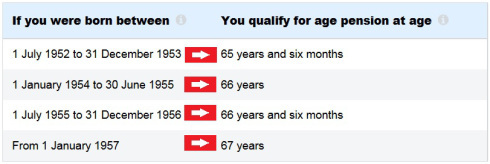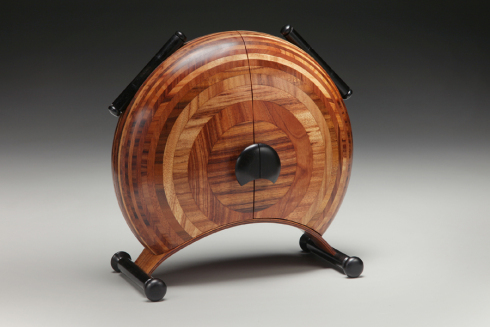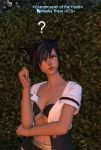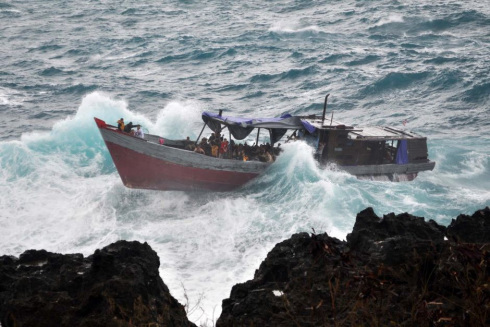A.C. Flory's Blog, page 120
September 26, 2016
#Pension age for Australian women
I never thought I’d be reliant on the pension when I got to be ancient but…there you go. Life is what it is. So when can I go on the pension, exactly?
65.
Oh, my Mum was much younger than that when she went on the pension, but I guess there are a lot more of us Baby Boomers now, so I guess it’s fair that the government [both Libs and Labor] would want to draw out the pension age.
Last time I checked, pensioners receive at least $100 more per week than the unemployed. $100 per week is $5,200 per year and more than $50,000 over ten years…
But wait! News just in: starting from July next year [2017] the eligible age for the pension will go up by six months every two years until it hits 67.
67?
Bangs head on desk. I can’t bear it. What if ‘they’ move the goal posts again? I may never get the pension…
-reads the criteria again-
Hang on a minute. It doesn’t say the pension age will go up by six months every six months! It’ll only go up once every two years, so…
-uses her fingers and toes-
It’s okay! I’ll only be 65 and a half when I become eligible!
-faints with relief-
All jokes aside, I did completely misread the eligibility criteria, and I know I’m not the only one so here’s a much easier to understand table of how the increase in the pension age will work:

The arrows are mine, the info. is from the Department of Human Services.
As a woman of a certain age -cough- I’m safe. Unless something radical happens in the next couple of years, I won’t have to wait until I’m 67 to get the pension, which is a huge relief. Now if only I could win the lottery and not have to rely on the pension at all…
Anyone know where I put that Tatts ticket?
cheers
Meeks
Filed under: Uncategorized Tagged: 67, age, Australia, men, pension, requirements, women








September 25, 2016
Inside the Box
I love tactile, quirky objects that also have a function and these boxes just make me drool. Simply beautiful.
 Ray Jones
Ray Jones
View original post 126 more words
Filed under: Uncategorized








September 21, 2016
Lady Margaret Cavendish – the first #scifi writer?

As a science fiction writer myself, I couldn’t resist sharing this article about Lady Margaret Cavendish which appeared in the Atlas Obscura. [My thanks to the Passive Guy for drawing my attention to the article].
The article goes into some very interesting detail about the Duchess and the story she wrote [she may also be one of the earliest feminists], but I’ll summarise by saying she was a natural philosopher [fancy name for scientist back then] and published twenty books, plays and essays. Amongst them was The Description of a New World, Called the Blazing World.
The story, published in 1666, tells the tale of a woman kidnapped by sailors who stumbles on a portal that takes her to a strange new world. There she become Empress to a world full of beast-men.
You can find the full article, which includes a lovely excerpt from The Blazing World, here:
I wish I’d known about the Duchess back when I first discovered sci-fi. In those dim and distant days, it seemed as if the only people writing sci-fi were men. I’ve since learned there are some brilliant female science fiction writers, including Ursula K LeGuin, Margaret Atwood and C.J.Cherryh to mention just three. Nevertheless, I can’t help wondering how many more there might have been had we [girls] been given role models like the Duchess at school?
Another good day at Casa Meeka.
September 20, 2016
#Innerscape and the joy of negative wordcounts
The title is a little misleading – I don’t actually have a negative wordcount, I have a positive wordcount of 137 for the day – but I am very, very happy.
Why? Because I know I’ve written much, much more than that today.
How much more?
I don’t know. I didn’t check my total wordcount in StoryBox before I deleted a huge chunk of verbiage this morning. That meant I started the day with a negative wordcount, and it’s taken me all day to fill up the gap. So the fact that I do have a positive wordcount is great news, especially as they are all good words, the kind of words I won’t want to delete when I start work on the story again tomorrow.
I know everyone says to ‘just write’ [and edit later], but that’s never been how I work. The story comes to me in fits and starts, and it’s often the nuances that point the way to the next scene. That’s why I write and delete and write again, groping for the story like a mole in a coal mine.
Writing isn’t always painful though. Sometimes I hit patches where everything is crystal clear in my mind, and the writing flows like a river in flood. Those are the times that keep me going because they produce a high that surely rivals the best drug on the market. And it’s free.
September 18, 2016
#Whatsapp – oh, so that’s what it is!
 What a difference a name makes. Believe it or not, until today, I really didn’t know what Whatsapp was.
What a difference a name makes. Believe it or not, until today, I really didn’t know what Whatsapp was.
So for all those other dinosaurs out there, here’s my definition of Whatsapp and messaging in general:
It’s instant messaging, but for your phone!
-blush- I know, I know. I feel so dumb, don’t rub it in… But you see, all the hype made me think messaging was something new. It’s not. IM, or instant messaging has been around on the computer for a very long time.
“But what is it?” you say.
On the computer, instant messaging is like making a phone call with your eyes instead of your ears. You and the person you are ‘talking’ to are connected in real time, and you type messages back and forth, also in real time. So you are having an ‘instant’ conversation using text instead of voice.
Compare this to email which is like sending a letter that the recipient receives instantly, but may not read [or reply] to until some time later.
I can’t remember when I first started using instant messaging, but I know I was using it daily by 2001. I stopped using it daily when I started receiving massive phone bills [I didn’t know that I would be slugged with a massive data surcharge].
Fast forward to the mobile era and ‘lo, smartphones have apps [a sexy word for a program] which can do instant messaging like computers but on the go. Instead of talking to someone on your contact list, or sending them a text [which is like a teeny tiny email that may or may not be read straight away], messaging apps allow smartphone users to text back and forth in real time.
“But why message when you can talk?”
Okay, I’m not completely sure of the answer to this one, but I think it has something to do with cost. Voice calls cost a certain amount of money. SMS text messages also cost money but less than voice calls, so my guess is that messaging costs less again.
The reason I’m so hesitant about the cost is because Australia is very different to the US. I believe that in the US, data [i.e. SMS and messaging etc] is practically unlimited so messaging is a satisfying and cheap alternative to voice calls.
Here in Australia, however, we have to pay for our data. I’m with Virgin Mobile and from memory I have 1.5 GB of free data included [per month]. Any usage above that incurs a cost. As I know how easy it is to use up 1.5 GB of data, I try not to use data at all – hence my lack of knowledge about messaging. And yes, I could upgrade to a better plan, but that would be an added cost on top of the money I already spend getting internet access for the computers in our house.
To be brutally honest, I’d rather play FFXIV and have access to the internet on my computer with its lovely big screen and decent speakers than ‘chat’ with you on my smartphone.
And that is why I didn’t know that Whatsapp is just an instant messaging program – because it’s designed for phones not computers.
So there you have it, a dinosaur’s eye view of Whatsapp.:)
cheers
Meeks
Filed under: Uncategorized Tagged: Australia, charges, comparison, data, messaging, smartphones, US, Whatsapp








September 15, 2016
resigning from australia
Poetry is not my forte, but this poem by Frank Prem touched a nerve, a great big one. He calls it an angry poem. I call it truth. I resign too.
I have to introduce this poem a little, as some of the references have passed from active memory since 2002. I’ve popped in a few links if anyone would like some context.
This is an angry poem, and a distressed outburst. My country was in the throes of right wing conservatism, fear, cowardice, prejudice, injustice and much else that you will glean, should you read on.
Much has changed, but sadly, far too much has remained the same, only become more institutionalised, and in some cases (see Hanson below) come back for a second bite.
I’ve just re-read the piece and I’ve decided not to withdraw my resignation yet.
Language Warning. Please be aware before rewading that there are a couple of instances of PG language in this piece. As I said above, this is an angry poem.
are there no flowers in Australia?
well that cow Hanson was a passing…
View original post 653 more words
Filed under: Uncategorized








Refugess and the politics of shame
Back in 1956, the Western world watched and did nothing as Hungary rose up against its Communist overlords in a bloody revolution that took place on the streets of Budapest.
I was almost four at the time. I didn’t know:
my Dad was one of the people who fought to kick the Soviets out, or that
our hard won freedom would only last a couple of weeks, or that
the West would sit on its hands as we begged for help to keep the Soviets from coming back.
As an adult I know about the Cold War and the possibility that intervention might have started World War III, but as that child, all I knew was that suddenly we were going on a great adventure, Mum, Dad and me. On the way out of the city, we passed lots and lots and LOTS of mounds in the park. They were covered with flowers and looked very pretty.
I don’t know where the flowers came from. It was starting to be winter already, but I remember them, one of a handful of visual images I retain from that time. I also remember being on a train. The train stopped in the middle of nowhere and Dad made us jump down on the tracks and run away.
Most of the time I travelled on Dad’s shoulders. He’d been a gymnast and was very strong. When the guide took us through the minefield at the border, Dad told me that no matter what happened, I was to stay absolutely quiet. No chatter. No laughing. No crying. Nothing.
I remember desperately needing to pee, and I remember snow but I don’t remember the moment when Dad fell, with me on his shoulders. I do remember that I didn’t cry out though, and I’m still really proud of that almost 60 years later.
We made it across the border into Austria but we had nothing left. Everything of value we gave to the guide to pay for our passage. Luckily the Austrians took us in. We lived in barracks with a lot of other people and I remember making a snowman outside.
As Dad spoke fluent French and German as well as Hungarian, he made some money as an interpreter for the people in the camp, but that money paid for extra food, nice stuff that wasn’t provided by our hosts, things like eggs and tiny bars of chocolate for me.
I remember one of the few times my father smacked me was when we went to a shop to buy some chocolate. In the window were some small toys and I think I was enamoured of a tiny metal frypan or pot. When my parents refused to buy it for me, I chucked a tantie [tantrum]. That’s a memory of shame.
Most of those very early memories are good ones though. I remember flying on a real plane and loving all the fresh fruit the cabin staff gave me. Oranges! Oranges were still a big deal in Europe in those days. And I remember thinking how silly my mother was because she threw up the whole time we were on the plane.
It took us about a week to fly from Austria to Australia and the Australian government paid for everything because…we were Hungarian refugees and the Western world was ashamed of not helping us.
Less that twenty years later, Australia’s involvement in another war – Vietnam – led to us accepting the first lot of boat people to arrive on our shores. These were South Vietnamese people who had been left behind when the West withdrew its forces…and its protection.
I remember that there was some grumbling amongst more conservative Australians about all the ‘boongs’ [derogatory label] arriving on our shores, but those Vietnamese boat people settled in and made us a better place. And they sure as hell added to our cuisine!
Now we are faced with another wave of boat people, and like my people and the Vietnamese people, they too owe their plight, at least in part, to our involvement in the Middle East. Prime Minister Howard decided to join the Alliance of the Brave, or whatever that bullshit name was, and Australian troops were sent into Afghanistan and Iraq.
I don’t want to get sidetracked into an argument about the rights and wrongs of our interventions overseas, but one thing is crystal clear – those interventions did not bring peace to either Afghanistan or Iraq. In fact, they could have triggered a domino effect in the Middle East as the whole region destabilized.
And that destabilization had victims. The lucky ones are those that died in a split second of sound and fury. The ones left behind to pick up the pieces did what humans have done since the dawn of time…they ran. Like me and my family, they grabbed their children and ran into abject misery because what they left behind was so much worse.
The big difference between me and mine and the Middle Eastern refugees is that the West has lost its capacity for shame.
For Australia, this descent into cruelty began with Australian Prime Minister John Howard and the label ‘queue jumper’. By calling the Middle Eastern boat people queue jumpers, Howard gave the latent racism of Australians a moral high horse to sit on.
I have to admit that when I first saw the footage of teeming refugee camps, I too bristled at the thought of queue jumpers taking the very limited spaces that Australia had to offer. I did not think, ‘Why aren’t we taking more of them?” I thought that fairness required a first-come-first served policy, with the most desperate getting to Australia first.
That was the power of the label ‘queue jumper’. What I didn’t realise at the time was that risking your life and the life of your child, spouse, elderly parent on a leaky boat is the ultimate sign of desperation. I also did not realise that these so called ‘queue jumpers’ were doing exactly what my parents had done – selling everything they had to pay for hope.
The misinformation about the Tampa and the ‘Children Overboard’ affair did not help.
Was that a deliberate decision on the part of John Howard’s government? Or simply an unfortunate mistake?
All I know is that even after the truth came out, the taint did not go away. In many peoples’ eyes, the boat people were no longer just queue jumpers, they were heartless, soulless, cunning bastards capable of sacrificing their own children to get what they wanted. How could any right thinking Australian let such people into our country?
In time though, the footage of cold-hearted queue jumpers drowning off Christmas Island threw a spanner in the works and the government was forced to change the narrative.

Picture courtesy of The Age. Click the photo to be taken to the original article.
Suddenly, our policy of exclusion was not about the queue jumpers any more, it was about the ‘people smugglers’. They had to be stopped, and if that meant being cruel to the surviving boat people well, so be it. As all parents knew, sometimes you had to be cruel to be kind. After all, we were trying to save their lives and wipe out a terrible, immoral scourge, weren’t we?
And so Australian politicians from both sides decided to enforce off-shore processing. If the boat people realised they would never get to Australia they would stop trying to come, wouldn’t they?
The answer to that naive question is no. The truly desperate don’t function on political logic. They are driven by fear on the one hand, and a naive, rose-tinted hope on the other. The truth is, the boats have not stopped coming, they have merely been diverted or sent back to come again another day.
When former Prime Minister Tony Abbott boasted about ‘stopping the boats’, he was telling only half the story. The other half, the desperate, grimy half was, and is, being hidden from us behind a policy of silence.
By pursuing their off-shore detention policy, the government has ensured that it can keep all of us in the dark. What we don’t know won’t prick our delicate consciences. It won’t make us demand a better way. And it won’t make us realise that the queue jumpers are just like us. That, more than anything else, is the prime objective of the media ban. By keeping the detainees invisible, the government makes them ‘other’ and humans have been scared of the ‘other’ since we lived in caves and had to fight each other for limited resources.
How unsurprising then, that…people… like Pauline Hanson feel free to spew their message of hate and fear? Who is going to call them on it when the truth is hidden?
I don’t know what the answer is, but after reading this article on Medium today, I know that current policy has to change. Not to save the refugees but to save ourselves. We like to think we live in the Lucky Country, and we like to think our culture is based on the ‘fair go’, but how will we see ourselves once history finally opens our eyes?
The truth can hurt but lies kill.
Meeks
Filed under: My soap box Tagged: 1956, Afghanistan, boat-people, Children-overboard, Christmas-Island, detention, Hungary, Iraq, John-Howard, Middle-East, off-shore, Pauline-Hanson, revolution, secrecy, Tampa, Vietnam








September 12, 2016
The Impossible Dream
-grin- No, not my impossible dream, the song….listen!
Both singers are wonderful but the baritone reminds me of Placido Domingo who also, surprise surprise, began his singing career as a baritone.
September 10, 2016
Anthropomorphising #robots…
GUEST: In recent years, we’ve seen a spate of movies and TV shows suggesting that robots will soon be so realistic and life-like that humans will form deep connections and yes, even fall in love. Movies like “Ex Machina” or the British TV show “Humans” both depict scenarios where robots or synths are so advanced…
via Why robots will never provide real intimacy — VentureBeat
No one truly knows where human ‘love’ comes from, but I’m astounded that anyone is still talking about whether robots/AI are capable of it.
Our capacity to love is, at its core, hormonal, i.e. chemical, i.e. biological. We are ‘wetware’ and until our technology gets to the point of being able to build robots out of flesh and blood, or some ‘substantially equivalent’ [rolls on floor laughing] material, we haven’t a hope in hell of reproducing the ability to love.
Some might even ask why we would bother building such a machine when a few minutes of sex at the right time of the month can produce a perfect specimen nine months later….
Filed under: Uncategorized Tagged: biology, hormones, love, robots, sex, wetware








September 9, 2016
It took a prime minister to get Facebook to see the difference between child pornography and history — Quartz

Facebook just can’t seem to engineer news. Two weeks ago the best-selling Norwegian author Tom Egeland wrote a Facebook post about the “photographs that changed the history of warfare,” according to The Guardian. One of the photos Egeland included in his piece was “The Terror of War,” a Pulitzer Prize-winning photo showing a naked 9-year-old…
I dislike Facebook, always have, but until fairly recently that was simply a personal position – similar to not liking the colour pink. Now, though, I worry about its amoeba-like spread into all aspects of internet life.
It’s as if Facebook wants to become the ‘internet of media’, the one-stop-shop for all its users needs. But the glory and the power of the internet era is its diversity, and the ability for all voices to be heard. Concentrating all that power in one place means that news, and be extension, history will once again be capable of being vetted.
This incident was almost too ridiculous to worry about, but in the future, I expect Facebook to become a lot better at being Big Brother. And that worries me.
Meeks
Filed under: My soap box Tagged: censorship, child, Facebook, history, news, pornography














